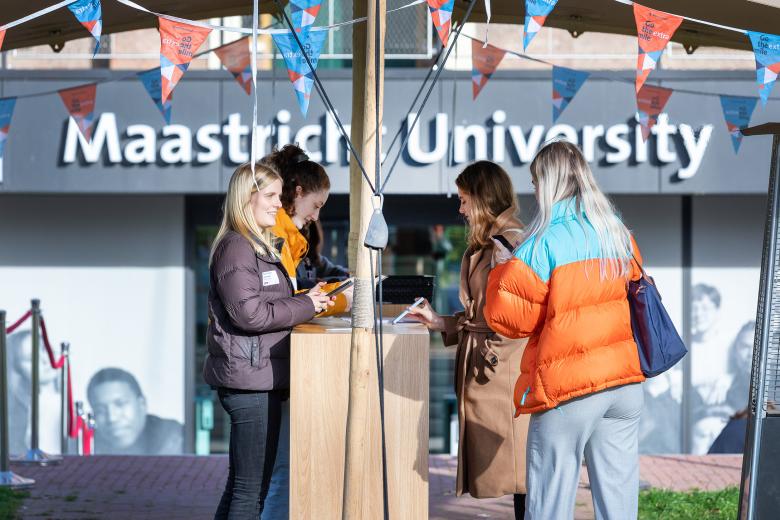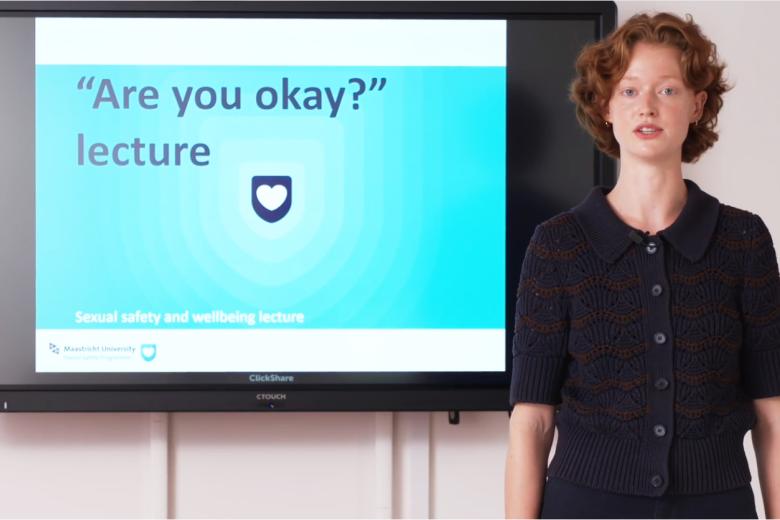More than a thousand prospective master's students visited Maastricht University's open day last Saturday .They came to experience the at

Gijs Goossens in science programme Focus (NPO2) on obesity
- Researchers
- Students
The number of people living with overweight and obesity continues to rise.

Are you okay? lecture available to all UM students
- Students
- UM news
The Sexual Safety Programme has made the online version of the "Are you okay?" lecture available to all Maastricht Univ

Fair & Smart Data Research Spurs Crucial Discussions on Smallholder Farmer Data Governance
- UM news
In a pioneering effort to address the challenges of smallholder data governance, the Fair & Smart Data research spe

Research lines
Research lines within the section of Eating Disorders and Obesity are all related to the main characteristics of eating disorders and obesity. More specifically, research within this research group focuses on Anorexia Nervosa, Bulimia Nervosa, Avoidant/Restrictive Food Intake Disorder, Binge Eating Disorder and obesity. However, this does not mean that we only study abnormal behaviour. We study normal eating behaviour as well to learn how and why abnormal and normal eating differ from each other.
Experimental research
Our studies are predominantly experimental in nature. In our research, we use many innovative methods and instruments, like computerized cognitive tasks, eye tracking systems, functional Magnetic Resonance Imaging (fMRI), Transcranial Magnetic Stimulation (TMS), Virtual Reality, and the psychophysiological assessment of the autonomic nervous system.
From lab to clinic – Translation
Our ultimate aim is to develop better interventions for people with eating disorders and obesity. Therefore, we usually follow a three-step design in our research. The first step is the study of an alleged basic mechanism in well-controlled laboratory experiments. We test whether we can induce minor symptom-like behaviours, feelings and/or cognitions in healthy participants. If we can, we might have found a mechanism that induces or maintains the disordered eating or body dissatisfaction. We then, in step 2, think of an intervention to tackle the mechanism. The effects of this intervention are tested in, again, well-controlled lab experiments. Participants with sub-clinical eating disorders or with some eating disorder symptoms might participate in this stage of research. We expect the symptoms (e.g., abnormal eating and/or body dissatisfaction) to reduce because of this intervention. If they indeed do, we translate our experimental intervention to a clinically useful treatment, in step 3, and we test the effects of this intervention in clinical participants.
Specific research themes include:
- Brain processes
- Cognitive processes and biases
- Craving
- Emotional eating
- Executive functioning & cognitive control
- Learning/conditioning processes
- Reward value of eating
- Taste and satiety
- Weight loss & dieting
Staff
Professor
Associate professor
- Katrijn Houben
Lotte Lemmens
Assistant professor
- Jessica Alleva
- Anouk Hendriks
- Ghislaine Schyns
Postdoctoral researcher
- Ilse van Lier
- Guiseppe Marrazzo
PhD candidate
- Emmanuelle Awad
- Lena Betge
- Anouk van den Brand
- Mila Dix
- Chloe Ephrem
- Britt Fleischeuer
- Gudrun Gudmundsdottir
- Jikke Hesen
- Laurens Kemp
- Codrin Mironiuc
- Rosalie Mourmans
- Josefine Schmitt
- Maaike Steenhuis
- Eva Vanbrabant
Support staff
- Nina Aussems (support staff NSMD)
Jessie Beerthuijzen (secretary)
- Lindy Dullens (Projectmanager New Science of Mental Disorders)
- Suzan Jordan (researcher)
